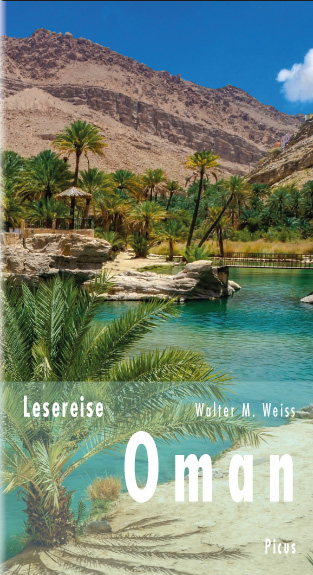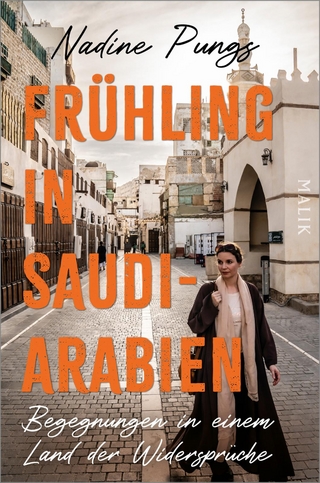
Green Sands
My Five Years in the Saudi Desert
Seiten
1994
Texas Tech Press,U.S. (Verlag)
978-0-89672-337-5 (ISBN)
Texas Tech Press,U.S. (Verlag)
978-0-89672-337-5 (ISBN)
- Titel ist leider vergriffen;
keine Neuauflage - Artikel merken
When the author left her small West Texas hometown in 1983 to move to the middle of the desert in Saudi Arabia, she began a dual life that lasted for five years. Her husband, Terry, was hired to manage a seven-thousand-acre wheat farm for a wealthy sheik, and she joined him six months later.
When Martha Kirk left her small West Texas hometown in 1983 to move to the middle of the desert in Saudi Arabia, she began a dual life that lasted for five years. Her husband, Terry, was hired to manage a seven-thousand-acre wheat farm for a wealthy sheik, and Martha joined him six months later. The farm, located ninety miles from Riyadh, was isolated and lonely. Within the confines of the farm, Martha continued her independent lifestyle. She dressed as she pleased, often wearing shorts for jogging. She drove the farm's pickup truck and mingled freely among the male farm workers. Outside the boundary of the farm, her life took on a different perspective. In observance of the strict rules that governed the lives of women in Saudi Arabia, Martha wore long dresses with long sleeves. She was not allowed to drive and was not permitted to travel unaccompanied. She ate in separate dining facilities in public restaurants. Martha embraced the opportunity to live among the Arabs with a positive attitude. She was curious about the Arab culture and immersed herself in its customs, society, religion, and traditions.
While in Saudi Arabia, Martha did research for her master's thesis on Saudi education for women, interviewed the Prince (who was the first Saudi Arabian astronaut), and attended a traditional wedding of the Sheik's sister-in-law. She also sat around a Bedouin campfire and drank warm camel's milk from a communal bowl, became quite adept at ridding her home of camel spiders and scorpions, and learned to cook a variety of native dishes. Although Saudi Arabia is a country veiled in ancient myths and legends, Green Sands gives readers a peek beneath the dark mask that shrouds this land of mystery and its women. From the book: When the Brits returned to their vehicles to leave, I wanted to jump into the car with them and travel with them to Riyadh, back to civilization. But their visit had a positive effect on me. It made me realize that I had a unique opportunity, living out in the desert, to experience authentic Saudi culture that few foreigners ever have the opportunity to experience. They bragged about our ability to literally transform such a barren wasteland into a lush garden of wheat, actually changing the sand to green.
This revelation brought a change in my attitude about my new home. Instead of thinking about the past and longing for all the things and people from which I was separated, I began to crawl from my shell of insecurity to appreciate and enjoy this strange new world around me. I thought of myself as an anthropologist who had been catapulted back in time, with limited time to learn as much as possible about a place that had its roots in ancient civilization. This is not to say that I didn't occasionally relapse into spells of homesickness and loneliness, but I didn't allow myself to wallow long in that state. I had a great deal to learn and experience.
When Martha Kirk left her small West Texas hometown in 1983 to move to the middle of the desert in Saudi Arabia, she began a dual life that lasted for five years. Her husband, Terry, was hired to manage a seven-thousand-acre wheat farm for a wealthy sheik, and Martha joined him six months later. The farm, located ninety miles from Riyadh, was isolated and lonely. Within the confines of the farm, Martha continued her independent lifestyle. She dressed as she pleased, often wearing shorts for jogging. She drove the farm's pickup truck and mingled freely among the male farm workers. Outside the boundary of the farm, her life took on a different perspective. In observance of the strict rules that governed the lives of women in Saudi Arabia, Martha wore long dresses with long sleeves. She was not allowed to drive and was not permitted to travel unaccompanied. She ate in separate dining facilities in public restaurants. Martha embraced the opportunity to live among the Arabs with a positive attitude. She was curious about the Arab culture and immersed herself in its customs, society, religion, and traditions.
While in Saudi Arabia, Martha did research for her master's thesis on Saudi education for women, interviewed the Prince (who was the first Saudi Arabian astronaut), and attended a traditional wedding of the Sheik's sister-in-law. She also sat around a Bedouin campfire and drank warm camel's milk from a communal bowl, became quite adept at ridding her home of camel spiders and scorpions, and learned to cook a variety of native dishes. Although Saudi Arabia is a country veiled in ancient myths and legends, Green Sands gives readers a peek beneath the dark mask that shrouds this land of mystery and its women. From the book: When the Brits returned to their vehicles to leave, I wanted to jump into the car with them and travel with them to Riyadh, back to civilization. But their visit had a positive effect on me. It made me realize that I had a unique opportunity, living out in the desert, to experience authentic Saudi culture that few foreigners ever have the opportunity to experience. They bragged about our ability to literally transform such a barren wasteland into a lush garden of wheat, actually changing the sand to green.
This revelation brought a change in my attitude about my new home. Instead of thinking about the past and longing for all the things and people from which I was separated, I began to crawl from my shell of insecurity to appreciate and enjoy this strange new world around me. I thought of myself as an anthropologist who had been catapulted back in time, with limited time to learn as much as possible about a place that had its roots in ancient civilization. This is not to say that I didn't occasionally relapse into spells of homesickness and loneliness, but I didn't allow myself to wallow long in that state. I had a great deal to learn and experience.
| Erscheint lt. Verlag | 15.10.1994 |
|---|---|
| Zusatzinfo | Illustrations, unspecified |
| Verlagsort | Texas |
| Sprache | englisch |
| Themenwelt | Reisen ► Reiseberichte ► Naher Osten |
| Reisen ► Reiseberichte ► Asien | |
| ISBN-10 | 0-89672-337-2 / 0896723372 |
| ISBN-13 | 978-0-89672-337-5 / 9780896723375 |
| Zustand | Neuware |
| Haben Sie eine Frage zum Produkt? |
Mehr entdecken
aus dem Bereich
aus dem Bereich
Tagebuch auf der Reise nach Griechenland
Buch (2023)
Jung u. Jung (Verlag)
16,00 €
Begegnungen in einem Land der Widersprüche | Von Dschidda bis Riad, …
Buch | Softcover (2024)
Malik (Verlag)
18,00 €


